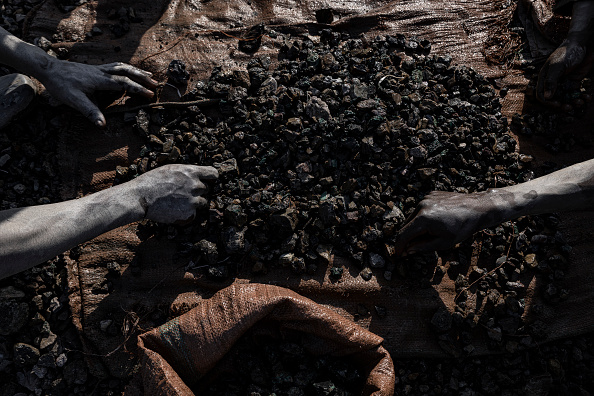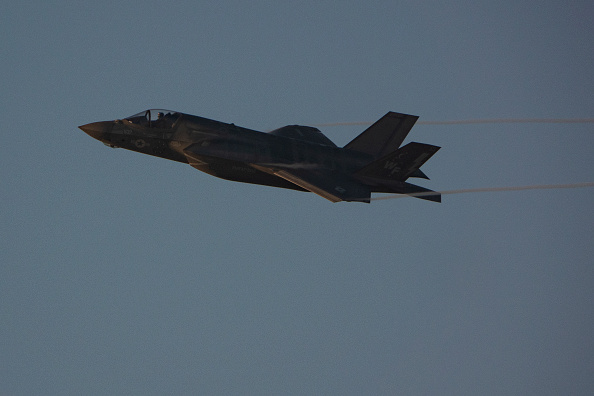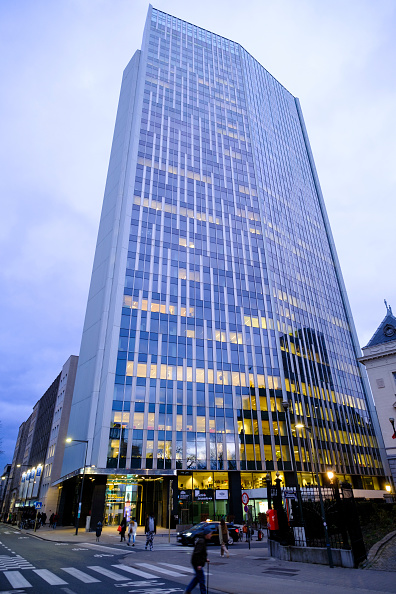Belgium’s foreign minister Maxime Prévot is due to visit Congo in the next few days for peace talks and discussions on mining governance, an agenda that connects conflict in eastern Congo with Europe’s technology supply chains.
His stop in Lubumbashi city includes a tour of a site for germanium, used in semiconductors and solar cells, operated by sState miner Gécamines and linked to Belgian company Umicore, according to Belgian news agency Belga on August 17.
Coltan, used in electronic equipment such as computers, is another mineral at the centre of attention. Around 15 per cent of the world’s supply comes from Rubaya in North Kivu on the Uganda and Rwanda border.
The site has been under the control of the M23 rebellion since April 2024, Reuters reported on August 13. The group imposed a levy of 15 per cent on every purchase of coltan, generating an estimated $800,000 (€685,440) per month to finance its operations.
M23, or the March 23 Movement, is a Congolese Tutsi-led insurgency that re-emerged in 2021. Congolese authorities and UN experts say the group is backed by Rwanda, which Kigali denies.
Since 2022, M23 has expanded its control across North Kivu, seizing mining zones and transport corridors. Fighting has forced hundreds of thousands to flee. The UN said 319 civilians were killed between July 17 and August 7 despite a ceasefire declared in mid-July, AFP reported on August 17.
Delegations from the Congolese Government and M23 have not even met in Doha, despite a framework agreed in Washington at the end of June, Belgian newspaper Le Soir reported on August 19.
The paper said the talks remained blocked over the release of prisoners, with M23 conditioning its participation on freeing some of its captured fighters. Meanwhile, fighting has continued in Congo’s North and South Kivu, with the rebels advancing toward Pinga and seizing new towns despite a mid-July ceasefire
In Rubaya, Coltan is mined by hand in rudimentary pits, often by children. Workers earn a few dollars a day, carrying heavy sacks of ore by bicycle to depots guarded by rebels. The trade routes run through border towns such as Goma and Bukavu into neighbouring countries, supplying global markets even as sanctions target militias and exporters.
Minerals such as coltan and germanium are critical for Europe. They are used in smartphones, computers, aerospace technologies and renewable energy systems. The European Union has identified these minerals as strategic for reducing reliance on China, which dominates the global supply of several rare materials.
The control of the Rubaya series of coltan mining sites near the town of Rubaya in Masisi Territory, North Kivu, has turned coltan into a war economy.
Before M23, another militia, PARECO-FF, controlled the sites. The US Treasury sanctioned that group and Hong Kong exporters in August for involvement in illicit mineral trade, while M23 remains under international sanctions imposed in 2013, Reuters reported.
The Belgian foreign minister’s Congo trip is also linked to international mediation. Negotiations in Doha, led by Qatar and the US, have sought to broker a peace deal between Kinshasa and M23.
A draft accord was circulated earlier in August but prisoner releases and ongoing clashes have delayed progress. The agreement had initially been targeted for August 18, AFP reported on August 17.
According to Belga, Belgium said the minister will raise questions of governance and corruption in Congo’s mining sector during his trip.
M23 set up a parallel administration in Rubaya to control mining, trade, transport and taxation after taking the site, a system that has complicated oversight and formal revenue collection.
The UN has documented smuggling of Congolese minerals through the border cities of Goma and Bukavu into Rwanda, where the ore is mixed with local production before export, masking origin and undermining traceability.
The US sanctioned PARECO-FF and several intermediaries over illicit mineral trade, while noting M23 has been under US sanctions since 2013; a US official said the Treasury would act against groups that deny access to critical minerals. The new measures targeted networks accused of diverting proceeds away from the state and into armed-group financing, according to Reuters.
The industry, the UN and NGO initiatives launched around 2010 to clean up eastern Congo’s mineral supply chains, have largely failed, with child labour and informal levies persisting at mine sites such as Rubaya.
Efforts to certify and audit flows have struggled against conflict, fragmented local authorities and the ability of traders to reroute ore across borders.





